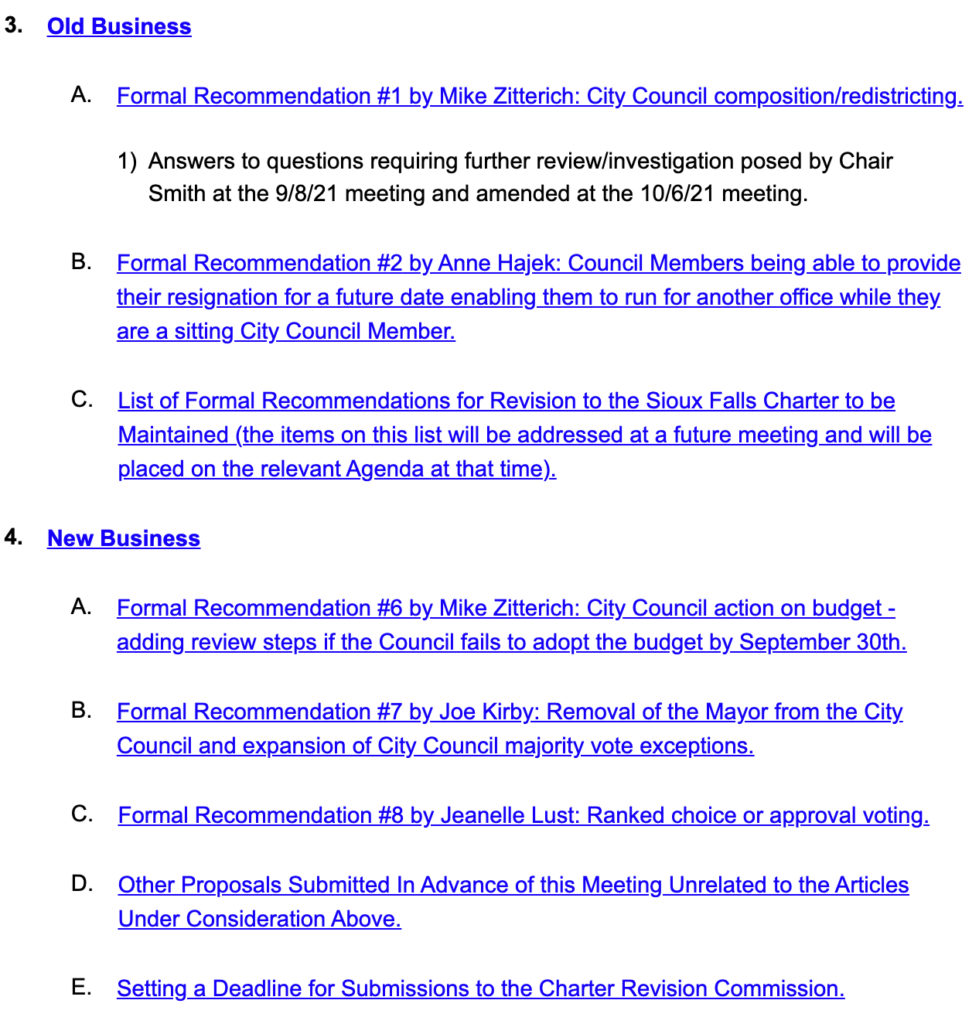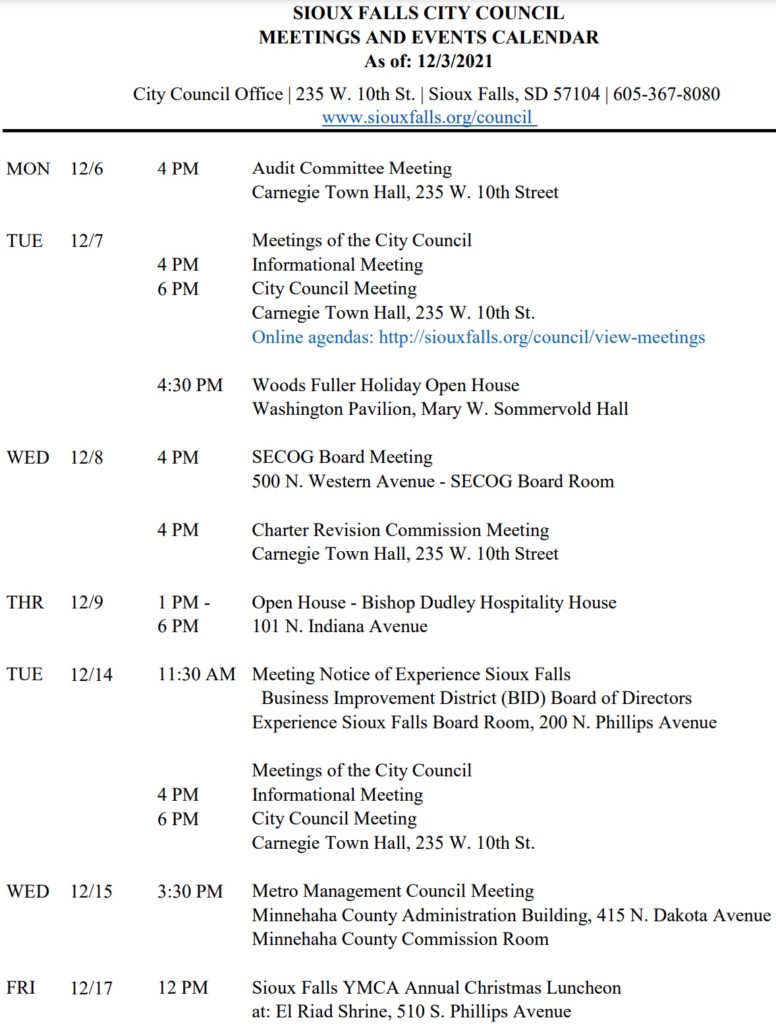Joe Kirby critiques Sioux Falls city government on his new blog
While there are many parts of the Home Rule Charter and Strong mayor form of government I don’t like, Joe’s perspective on its current status is spot on;
We intended that the city council would be a strong partner of the mayor. The council is a part time, legislative body with control of the purse strings. As the city charter says, “all powers of the city shall be vested in the city council.” We thought the council would provide the long-range policy guidance needed to complement the mayor’s focus on daily operations. While many incredible people have served on the city council over the past thirty years, it has never quite performed as we intended.
The council sometimes seems to lack a strong, separate identity. All too often, it has done little more than rubber stamp the mayor’s proposals, both good and bad. That has occasionally created big messes, such as the ugly and incomplete Village on the River project in downtown Sioux Falls.
That project was rushed through the approval process without much transparency or chance for public dialogue. Some city council members and many citizens raised good questions about it. A pause would have been appropriate, and perhaps likely if the council had been able to do its job right. Instead of the promised fifteen-story building housing two hotels and a bunch of retail, we are left with a homely seven story parking garage with an unclear future.
Oh, but it gets better, he brings up why we don’t need the mayor chairing meetings and breaking ties (a tie vote would result in failure of an item);
Another related problem with the city government model we put in place is that the demands on the mayor can sometimes be too great. Some mayors have told me the job can be overwhelming, especially when they must run city council meetings after a tough day at the office. Given all that, I think I know what would fix these problems.
We went too far in our effort to ensure strong, centralized leadership by the mayor. We failed to adequately separate the executive and legislative functions in city government. Of course, the mayor is the city’s chief executive. Unfortunately, we also provided that the mayor chairs city council meetings and even casts the deciding vote on ties. In short, the mayor has a large measure of control over the council. All things considered that was a mistake.
He outlines why it is important to separate the council from the mayor’s office;
Separation of powers provides necessary checks and balances on power. In government it is a tried-and-true way to avoid the pitfalls of an individual or group exercising too much power. Can you imagine the President having the power to run congressional sessions? Or the governor running the legislative session? Of course, that wouldn’t work well for federal or state government, just as it doesn’t in our city.
Based on what we have seen, I would amend the city charter to separate the executive and legislative branches of our city government. I have proposed this idea a couple of times to the charter review commission, but they aren’t interested. Inevitably, those who are part of the system aren’t motivated to rock the boat. As they say, “you can’t fight City Hall.”
Yeah, the CRC isn’t big on doing anything. Those meetings are a graveyard of good proposals.
I hope Joe continues blogging, and I hope he brings a petition forward to let voters decide if we should make these changes. Now is the time to take the mayor’s power away and return it to the council.

